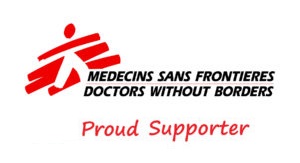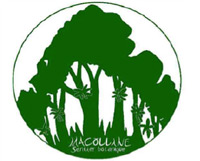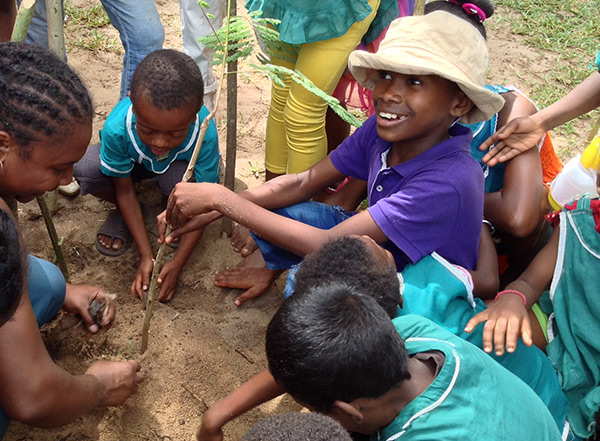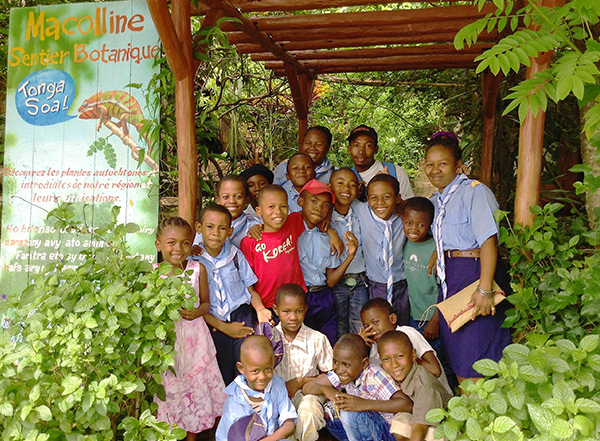Non-Governmental Organization (NGO)
The Namuwongo Literacy Project
The Namuwongo Literacy Project is a non-profit, charitable organization that strives to provide children from the slums of Namuwongo with the tools of literacy and numeracy to break through the cycle of poverty.
The members of this local, charitable organization are committed in our efforts to fund raise year-round in order to provide an education, the benefits of medical insurance, two meals a day, clothing and shoes to 20 children from the slums.
Medecins Sans Frontieres
Médecins Sans Frontières/Doctors Without Borders (MSF) is an independent international humanitarian organization that provides assistance to people affected by conflict, epidemics, disasters, or exclusion from healthcare. Teams are made up of tens of thousands of health professionals, logistic and administrative staff.
MSF’s actions are guided by medical ethics and the principles of impartiality, independence and neutrality.
MSF was founded in 1971 in Paris by a group of journalists and doctors. Today, they are a worldwide movement of more than 42,000 people. In more than 70 countries, MSF provides medical humanitarian assistance to save lives and ease the suffering of people in crisis situations.
Aust & Hachmann Canada LTD is a proud supporter of Médecins Sans Frontières/Doctors Without Borders (MSF). We commend their dedicated work and initiative the world over. Most recently, they supported Madagascar’s Ministry of Health staff in tackling an outbreak of plague in and around Tamatave, Madagascar, focusing on boosting hygiene and infection control measures in and around the centre, training medical staff, conducting health promotion activities in the community, and improving patient triage systems.
We look forward to continuing our support of MSF into the future.
Massive increase in food needed as famine looms in southern Madagascar
ANTANANARIVO/PARIS – An immediate and massive increase in food aid is urgently needed for people in southern Madagascar, says Médecins Sans Frontières (MSF). Our teams in the region are witnessing an exceptionally severe malnutrition crisis which, in some places, borders on famine.
“We’re seeing totally destitute people who have literally nothing to eat and are teetering on the edge of survival,” says Julie Reversé, MSF operations coordinator in Madagascar. “Some have had to sell their cooking utensils and don’t even have containers to fetch water.”
In some villages in Amboasary district in Anôsy region, MSF teams have found an average of 28 per cent of children under five are acutely malnourished, one-third of whom have severe malnutrition and are therefore at high risk of death.
Since late March 2021, MSF teams have been screening and treating people for acute malnutrition and providing basic medical services through mobile clinics in Amboasary district. MSF teams are also working to improve people’s access to drinking water by distributing jerry cans, repairing hand-operated pumps and treating and transporting water drawn from the river. MSF teams are currently gearing up to launch food distributions and scale up inpatient treatment for patients with severe acute malnutrition and associated medical complications.
Committee for Leprosy Relief in Antalaha, C.A.L.A.
It is hard to believe that in this modern era an ancient disease such as leprosy even exists. Unfortunately this is the case in the rural areas of Madagascar even though a cure for leprosy was discovered a long time ago. The disease is easily treated with antibiotics but if left untreated the typical symptoms will progress to the eventual loss of limbs at the extremities and even death. In the rural villages the disease is treated with much fear and superstition. People affected are often banished along with their families as villagers erroneously fear they will also be infected. These unfortunate victims have nowhere to go.
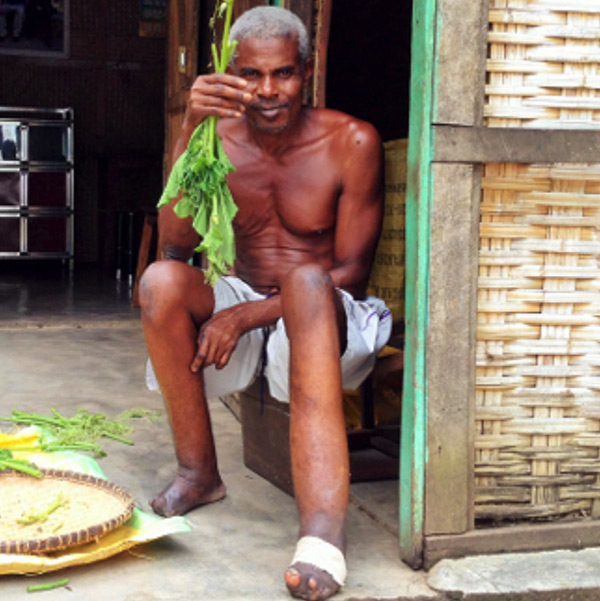
Living with the effect of Leprosy – Belfort Village
C.A.L.A. was created in order to oversee a village where people affected by leprosy could come with their families and live normal and productive lives. The program has private, corporate and government sponsors throughout Europe and North America. It has been extremely successful and there are now two villages (Belfort just north of Antalaha) and Jules (Just south of Antalaha) supported by the C.A.L.A. initiative. Each village boasts several hundred residents. There is a primary school, cafeteria, outdoor facilities for men and women, and many well built typical Madagascar homes. Environmentally friendly agricultural practices are encouraged as well as education and family planning.
Over the past 15 years both villages, in particular Belfort, have grown into thriving communities and C.A.L.A. has expanded their mandate to accept other disenfranchised individuals such abandoned children, orphans, albinos, etc.
MACOLLINE/JHA fund
Macolline, C.A.L.A. and JHA FUND are working together towards reforestation and *silviculture in Antalaha, Madagascar. The APM Institute (Association for Protection of Macolline) was originally established for the reintegration of former leprosy patients in Antalaha, which resulted in the creation of this “forest for education”. The C.A.L.A. Association –Leprosy Relief Committee of Antalaha, is a village that manages Macolline Botanical Garden, giving work to the physically challenged leprosy victims and getting them back in to the social and economic life of the region.
Our mission and purpose with Macolline is to raise awareness and educate as many teachers and students as possible about conservation, nature, reforestation and the use of “green charcoal” in using Macolline as a learning tool, along with our *ecopedagogy educators/guides. Macolline manages the largest collection of trees and plants in Antalaha and is engaged in an initiative to promote green projects.
* Silviculture is the practice of controlling the establishment, growth, composition, health, and quality of forests to meet diverse needs and values. The name comes from the Latin silvi- (forest) + culture (as in growing).
* Ecopedagogy is a discourse, a movement, and an approach to education that has emerged from leftist educators in Central and South America including Paulo Freire, Moacir Gadotti and Leonardo Boff that seeks to re-educate “planetary citizens” to care for, respect and take action for all life.
Current activities at MACOLLINE:
- Provides work for former C.A.L.A. leprosy patients with physical disabilities, as well as their families
- Several reforestation projects throughout the commune. In total, we have planted over
185 000 trees: Belfort village = 30 000; Jules village = 20 000; Waterfront of Antalaha = 5000 (half have disappeared due to a tidal wave in 2012); Tree nursery = 100 000; Experimental forest to create green charcoal = 25 000; Youth Center = 150; Eastern Cape = 500; Ambodikakazo = 200 and Manambato = 5000. This includes fruit trees, fast growing trees for charcoal, hardwood trees, etc… - School visits with local eco-guides, more than 400 students and young adults have visited from January 2014 to date, participants including 5 schools in the SAVA region, members of the local church, boy scouts and English environmental clubs such as GIDA, KEEN and EARS
- Provide work to the village women by buying handicrafts to sell at the MACOLLINE/CALA shop in the town of Antalaha
- Implemented a battery recycling program in the commune
- Participated in the UN World Tourism Day
- Currently completing tree, plant and flower inventory in order to follow the evolution of nature on the protected hill Macolline. Last inventory taken was in 2010
- Macolline has websites available in French and English
- Accepted in to the Sustainable Tourism Program of Madagascar in November 2014
- Listed on Trip Advisor
Donors in the US and CANADA are now able to make tax-effective gifts to CHARITIES AID FOUNDATION (CAF) with Macolline as the grant recipient.
_________________________________________
Use the link below to proceed.
cafa.iphiview.com
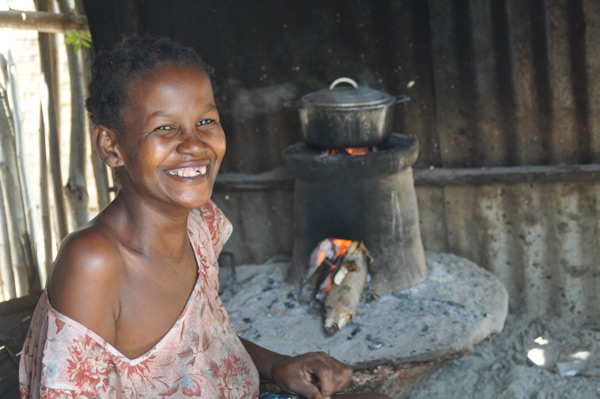
Resident of Belfort Village
Madagascar is a victim of ancestral traditions like “tavy” (slash and burn) which has resulted in major deforestation all around the island. To remedy this situation, it is appropriate to sensitize young ages. Macolline strives for reforestation with native species grouping different endemic species, according to UNESCO conservation priorities with tens of thousands of trees including over 600 species of precious and semi-precious native trees, fruit trees and fast growing trees. Macolline has been participating for more than 12 years for the fight against deforestation. Precious woods sometimes take centuries to reach their maximum size. This explains the looting of highly threatened species. Today it is illegal to chop down or to export these precious woods. Unfortunately, illegal logging is still one of the major environmental problems of our region. These include woods like: rosewood, pallisandre, ebony etc…
We fight against the disappearance of precious species by exploiting forestry in creating employment and a source of income while protecting the forest. Macolline also produces seeds to reforest these trees. Nearby Macolline, we have also developed new forests by planting fast growing species that will be used for “green coal”. For example, a 25 year old forest with 4 waves of planting: In 1992, 300 villagers began planting pine trees on a total area of almost 40 acres. Additional planting waves were in 2008, 2009 and 2010. The objective, to meet the demand for coal, is to achieve reforestation continuity in order to avoid taking away from the natural forests of the region. 85% of households use charcoal. Filao (Casuarina equisetifolia) is a fast growing tree, usually 1m-10m in 2 years. Maximum size is 40m. We also plant the False mimosa (Leucaena leucocephala), another fast growing tree where the properties of the roots create nitrogen fixation, the leaves provide good compost and the wood creates a perfect green coal alternative, which is needed for daily needs of the population.
Since 2001, the goal of the APM has been reforestation of native species and to enhance the Malagasy environment. In addition to the traditional activities of the tourist park, the site aims to raise awareness of the various Malagasy forest species such as medicinal plants and their characteristics. Underlying each component of the training program is a commitment to promote understanding of tropical plants and native plants and their ecosystems, as well as traditional knowledge and practices.
Currently, the site is visited by schools from primary classes to University level, followed by tree planting. We believe that students and teachers are the key to preserving the unique environment of Madagascar. The objective of the Interpretation Center at the entrance of Macolline is to host classes and students by providing awareness days for the protection of nature. Teachers will adapt their teaching approach with as many local students as possible. Our eco-guides have received MAD’ERE Kit internships, Madagascar National Park training and have completed GIDA courses (Independent Guides of Antalaha with diplomas), and all these have a role in the education of Macolline for Malagasy students. Today, the association wants to expand its natural biotope protection missions by creating awareness days for school groups.
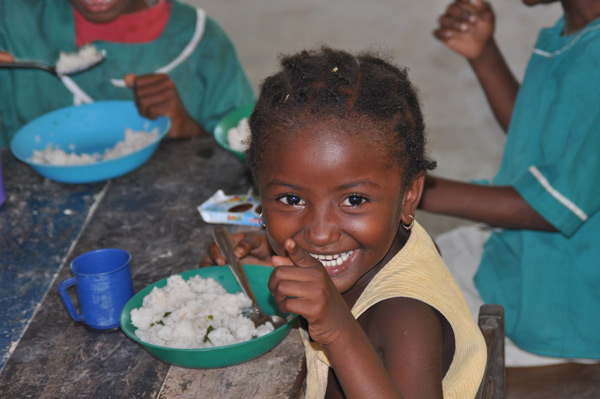
Smiling Eyes – Belfort Village
The APM capacity building program includes counselling and continuously monitors the students of all ages in the region of Antalaha with workshops and training programs related to conservation and reforestation. Macolline and its educators aim to increase local capacity of individuals and communities to manage their natural resources. Our main priority is focused on environmental education to become a resource center where teachers and students can enrich their botanical and environmental knowledge. We believe that combining this with introductions to the actual work done in the tree nurseries is a good approach to address environmental education.
Macolline is a forest that provides the staff of education centers an awareness tool for the protection of biodiversity. Our education activities, programs and resources have been developed to provide an integrated approach in environmental education in the SAVA region. Conservation efforts are not sustainable unless undertaken in collaboration with educational initiatives and capacity building for Malagasy people and local communities that are dependent on natural resources. Youth awareness and involvement in the future of the planet is the only way to meet the environmental challenge of the coming decades.


